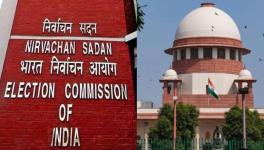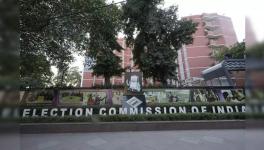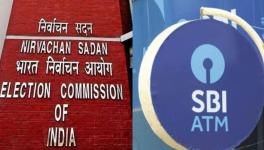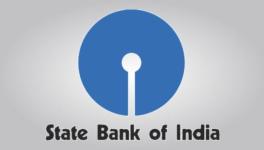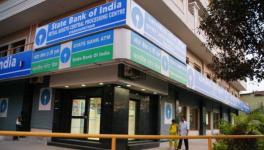Higher-Ups May Have Pressured Banks to Fund Patanjali for Ruchi Soya’s Acquisition
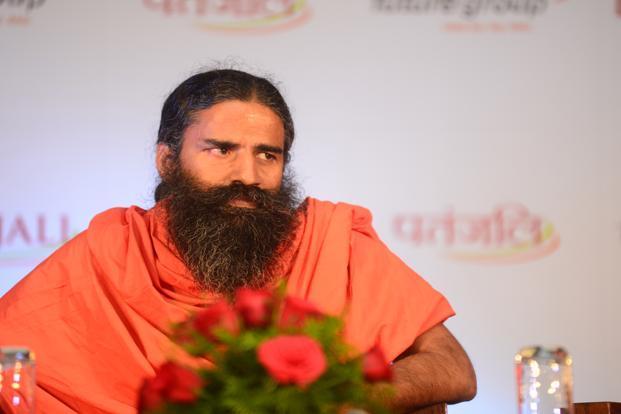
Image for representational use only.Image Courtesy : Livemint
New Delhi: The manner in which yoga guru-turned business tycoon Ramdev-led Patanjali Group is acquiring edible oils manufacturing company Ruchi Soya is emerging to be another classic case of crony capitalism, as public sector banks which have been jittery over lending to Patanjali after numerous downgradings by credit rating agencies, have nowreportedly agreed to fund the controversial group.
This sudden change in the banks’ stance towards Patanjali may be a result of interventions from higher-ups, sources told NewsClick.
It has been reported that the State Bank of India (SBI) and some other public sector banks have decided to lend Rs 4,000 crore to Patanjali Ayurved Limited (PAL) for the acquisition of Ruchi Soya. The edible oil company had embarked on bankruptcy proceedings under Insolvency and Bankruptcy Code in December 2017.
In October, Union Finance Minister Nirmala Sitharaman had advised banks to give up any hesitation in giving loans to self-help groups and companies backed by spiritual leaders. While the advice appeared to be in favour of the Patanjali group, experts had ridiculed the statement, as it lacked rationale.
In April this year, Ruchi Soya’s committee of creditors led by the SBI had agreed to a resolution plan submitted by PAL. According to the plan, PAL had made a Rs 4,350 crore offer, of which, Ruchi Soya’s lenders will get Rs 4,240 crore for their dues and another Rs 110 crore is to be invested in Ruchi Soya’s expansion post merger. In effect, the lenders took a haircut of about 65% as Ruchi Soya’s outstanding dues were Rs 12,100 crore.
Patanjali Group’s spokesperson SK Tijarwala told Economic Times that PAL had deposited Rs 1,150 crore, the entire equity portion as per the resolution plan in an escrow account of the group’s Special Purpose Vehicle Patanjali Consortium Adhigrahan Private Limited (PCAPL) with the SBI. PCAPL was formed in May this year which will be merged with Ruchi Soya after complete acquisition. Patanjali claims that it plans to settle the remaining amount Rs 3,200 crore for the completion of the transaction through loans from banks.
While the original deadline for the implementation of the resolution plan was November 21, Patanjali Group has appealed to the National Company Law Appellate Tribunal (NCLAT) multiple times for extension of the deadline. Subsequently, the NCLAT on Tuesday extended the deadline to December 23. However, the appellate Tribunal has also granted liberty to the committee of creditors to approach it in case Patanjali fails to make the promised payment within the stipulated timeframe.
In October and November, at least three rating agencies, including ICRA and CARE, have downgraded ratings for bank loan facilities of Patanjali. Following this, several newspapers reported that public sector banks including the SBI are being apprehensive to extend loans to Patanjali.
Email queries seeking clarifications on this matter remain unanswered from Patanjali group. This story will be updated once we get a response.
Care Ratings Agency in October downgraded PAL’s ‘Long Term Bank Facilities’ from CARE A+ to CARE A-. The agency stated that the sizable acquisition of Ruchi Soya constitutes to 151% of PAL’s net worth as on March 31, 2019.
Rating agency ICRA has downgraded PAL's 'Fund Based Cash Credit Limit' instrument to ICRA A+ to ICRA BBB in October. “The ratings downgrade is because of lack of adequate information regarding Patanjali Ayurved Limited ’s performance and hence the uncertainty around its credit risk,” stated ICRA.
Among the top lenders of Ruchi Soya were State Bank of India, which had an exposure of Rs 1,800 crore, followed by Central Bank of India at Rs 816 crore, Punjab National Bank at Rs 743 crore and Standard Chartered Bank at Rs 608 crore and DBS at Rs 243 crore.
In January this year, Adani Wilmar Ltd, promoted by Gautam Adani, opted out from the race of acquiring Ruchi Soya citing delay in the insolvency process.
Get the latest reports & analysis with people's perspective on Protests, movements & deep analytical videos, discussions of the current affairs in your Telegram app. Subscribe to NewsClick's Telegram channel & get Real-Time updates on stories, as they get published on our website.









